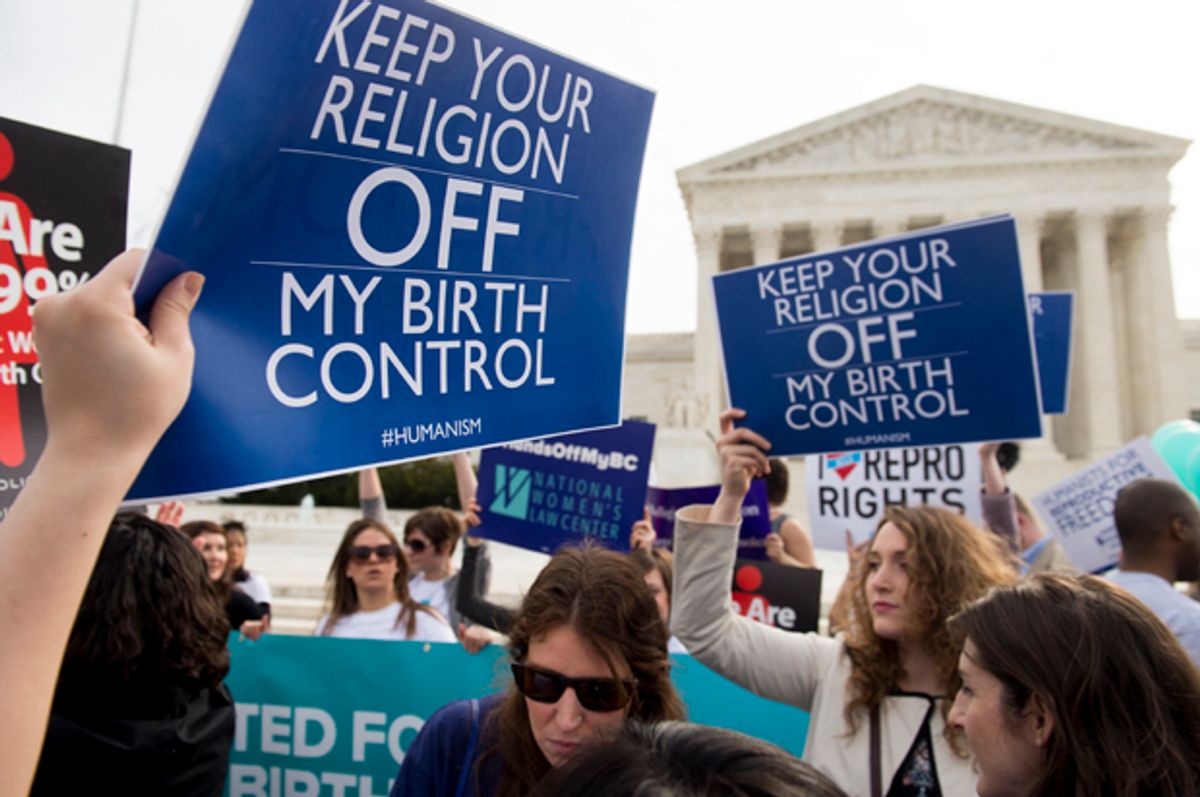After a federal judge in California blocked new rules by President Donald Trump that would allow employers in a dozen states to opt out of providing no-cost birth control coverage by citing religious objections late on Sunday, a second federal judge extended the ruling nationwide late on Monday.
? COURT WIN ?
My Office just won big, securing another *national injunction* against @POTUS' + @HHSGov's assault on women's contraceptive care coverage.
Our previous victory blocked an interim federal policy. Then, the final rules were released. Now, they're #blocked ? pic.twitter.com/k1odBme2hr
— AG Josh Shapiro (@PAAttorneyGen) January 14, 2019
Judge Haywood Gilliam ruled on Sunday that he would grant a preliminary injunction request being made by the states of California, Connecticut, Delaware, the District of Columbia, Hawaii, Illinois, Maryland, Minnesota, New York, North Carolina, Rhode Island, Vermont, Virginia and Washington, according to the Associated Press. The attorneys general in those polities requested that the new Trump policy not be implemented, as was scheduled to occur on Monday, so that a lawsuit challenging their legality can move forward. Gilliam agreed that the policy should not be implemented in the states filing the lawsuit, although he stopped short of blocking it from being implemented throughout the nation. On Monday, a second federal court mandated the injuction be applied nationwide.
"The law couldn’t be clearer – employers have no business interfering in women’s healthcare decisions," California Attorney General Xavier Becerra said in a statement. "Today’s court ruling stops another attempt by the Trump Administration to trample on women’s access to basic reproductive care. It’s 2019, yet the Trump Administration is still trying to roll back women’s rights. Our coalition will continue to fight to ensure women have access to the reproductive healthcare they are guaranteed under the law."
Becerra's view is shared by many medical experts.
"Every day I see how access to contraception improves my patients' lives," Dr. Emily Scibetta, an OB/GYN specialist in California and a Fellow with Physicians for Reproductive Health, told Salon. "I take care of very sick women who often need contraception to prevent a pregnancy that could indeed kill them, and no matter where they work women deserve to have access to contraception, and employers have no place in making these decisions. These choices are private and just as employers would not intrude on these conversations in other discussions about women's health care, this is a dangerous intrusion on women's privacy and their ability to get the health care they need."
That view was echoed by another doctor associated with Physicians for Reproductive Health.
"When the ACA passed and allowed patients to have access to contraception, I was very excited because that allowed a lot of women to access care that they wouldn't have had the ability to do," Kristyn Brandi, assistant professor at Rutgers New Jersey Medical School and a board member for Physicians for Reproductive Health, told Salon. "And I saw a drastic change in my patients, both in their health and well-being, because they were able to get birth control without worrying about cost and access. So when I heard that Trump was thinking of blocking access to birth control, I was very concerned about my patients."
Democratic National Committee Women’s Media Director Elizabeth Renda expressed a similar view.
"The Trump administration’s new contraception rule is yet another attack on every woman’s right to make decisions about her own body with her doctor," Renda explained in a statement. "This rule is unconstitutional, immoral, and shameful. This is just the latest move the Trump administration has made to turn its back on women, and it’s just another reason why Democrats are winning women’s votes by historic margins in the Trump era. Every woman deserves the fundamental right to make her own decisions about her reproductive health. Democrats will never stop fighting back against the Trump administration’s and Republicans’ ceaseless efforts to come between women and their doctors."
Planned Parenthood was also happy with the court's decision.
“Women in 13 states and Washington, DC can continue accessing affordable birth control tomorrow. We are now waiting on a Pennsylvania court to see whether women in the remaining 37 states will be able to do the same," Dr. Leana Wen, President of the Planned Parenthood Federation of America, said in a statement.
“As a doctor, I cannot believe that we are still debating birth control in 2019, something that nine in 10 women will use in our lifetimes. Affordable, accessible birth control is why the U.S. has reached the lowest unintended pregnancy rate in 30 years. It’s time that politicians recognize birth control as health care and that women, in consultation with doctors, decide what contraception we receive — not our employers."



Shares